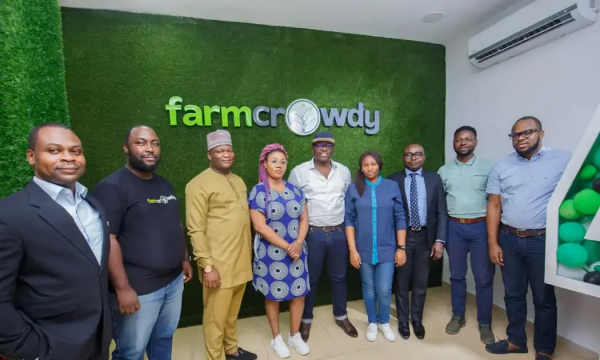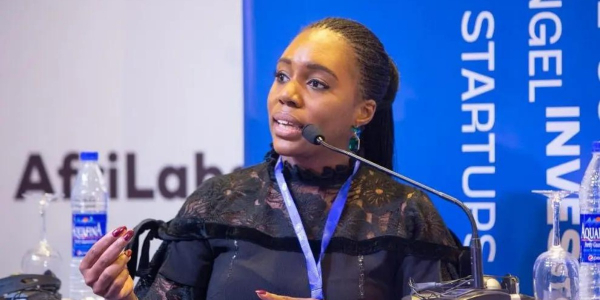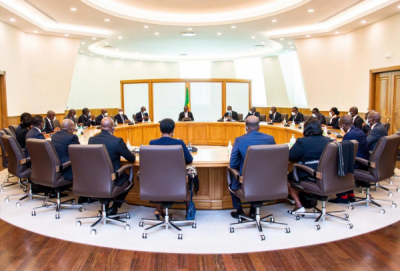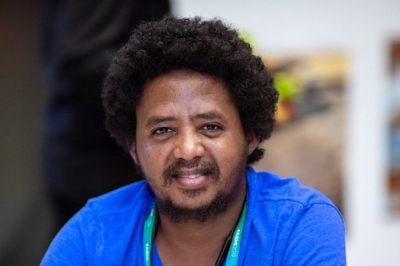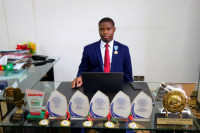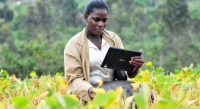Farmcrowdy Foods Limited launched the digital platform amid the coronavirus pandemic as a way to curb a potential food shortage.
Farmcrowdy Foods is a digital platform launched in April 2020 by Nigerian startup Farmcrowdy Limited. It helps users easily purchase fresh farm products and groceries.
According to Farmcrowdy Foods’ business lead, the digital platform completes the local production’s value chain. “What we sell is what we get from the aggregation centers. On Farmcrowdy Foods, our products are classified into grains, tubers, seafood, wheat, and fruits and veggies. Save for our seafood where we’ve partnered with credible importers and farmers who produce things like snails and prawns locally, every other thing we have on our platform is gotten from our aggregation centers,” she added during an interview with Techpoint Africa.
Right from its launch, the solution became popular and, in its first 90 days, it recorded 3,000 orders just through its Android app. The only challenge it faced was logistics since there were Lagos areas “where cars and bikes cannot ply without suffering some kind of damage,” Linda says.
To access the platform’s contents and information, users must have an account or create one. To support its growth, the startup -founded in 2016 by Onyeka Akumah, Akindele Phillips, Temitope Omotolani, Christopher Abiodun, and Ifeanyi Anazodo - completed several funding rounds totaling US$3.4 million. In late 2020, it revealed that it had already raised US$15 million to finance 25,000 farmers.
Adoni Conrad Quenum
The young woman is convinced that digital innovation will create wealth, promote human dignity and promote prosperity in Africa. As a member of several networking organizations, she is hard at work promoting the continent’s innovation ecosystem.
Anna Ekeledo (photo) is a Nigerian senior marketing executive and executive director of AfriLabs Foundation (since 2016), an organization that federates 347 innovation centers across Africa. AfriLabs networks entrepreneurs, investors, tech entrepreneurs, and web/mobile engineers. In line with its mission to support African tech hubs, it provides financing, mentorship, networking opportunities, and tools to build the capacities of high-potential entrepreneurs.
In an interview with The Guardian, in 2021, Anna explained that as AfriLabs Foundation’s executive director, her work “entails overseeing the running of the organization effectively to ensure we achieve our mandate to our community and the African innovation ecosystem.”
“Externally, I engage multiple stakeholders to foster collaboration, raise awareness and funding for our work and our community of hubs, entrepreneurs, and innovators. I also work closely with the AfriLabs Board to ensure that we stay true to our vision, mission, and our strategies are aligned with them,” she added.
The young executive director is a marketing management graduate from the Leeds University Business School (2012). Since 2020, she is a member of the Europe Foundation’s strategic force group. She also chairs a working party on AfCFTA negotiations at Ecommerce Forum Africa, an organization that promotes e-commerce on the continent.
Since 2019, Anna is the African regional innovation lead for academic research institution Edtech Hub. About one year earlier, she was appointed a member of the Nigerian Industrial Policy and Competitiveness Advisory Council.
Before her immersion into the networking sphere, the marketing executive held various marketing and consultancy positions at home and abroad. From November 2010 to September 2011, she was an assistant investment officer for the Nigerian Investment Promotion Commission. The following year, she became a brand ambassador for the marketing agency iD Experiential. Then, in 2013, she was the marketing manager of real estate marketing consultant Value Chain Project Consultants.
She further enhanced her marketing expertise as a business developer for Nigerian POS manufacturer Ingenico SA and senior marketing executive for digital marketing training institute Wild Fusion Digital Center. In 2015, she was appointed consultant for World Bank’s project GEMS in Nigeria before taking the helm of AfriLabs Foundation. From 2019 to 2022, Anna was on the advisory board of Technopolis Group, a science, innovation, and technology consultant. In 2021, she made it to the Agile 50 list celebrating the “world’s 50 most influential navigating disruption.”
Melchior Koba
One of the important reforms implemented by African countries in recent years is the introduction of biometric ID documents. The new system can help authenticate holders based on a set of biometric information.
Benin will officially stop the issuance of non-biometric ID cards. The decision was decreed during the ministerial council held in Cotonou, last July 6. The country, through the National Agency for the Identification of Persons (ANIP), will replace them with biometric cards per the decree n° 2020-396 of July 29, 2020.
According to a release issued after the ministerial council, the ANIP has taken, since 2020, appropriate measures to efficiently assume its tasks. Thanks to those measures, national ID cards’ processing time is reduced to one week, we learn.
The satisfying results achieved by the agency prompted the government to “stop the issuance of non-biometric cards, which are no longer compliant with international standards,” the release reads.
The new identity card is a visa-card-like document with an integrated microchip that stores biometric data like fingerprints, names, surnames, etc. Presented as a tamperproof document, it includes a QR Code (containing an electronic signature) and a holographic code making it hard to falsify the identification information.
Samira Njoya
The coronavirus pandemic turned lives upside down everywhere, forcing habit change in almost every sector. It also accelerated digitalization and innovation, with local entrepreneurs developing solutions to address their compatriots’ pain points.
OnilBox is a Tanzanian startup that helps users find nearby training studios, gyms, etc, and book fitness activities and events. It was launched by Natalino Mwenda, in 2021, during the coronavirus pandemic to help fitness enthusiasts find gyms and similar facilities to work out in uncrowded locations.
“The concept originated amid COVID-19 from a garage CrossFit gym that users wanted to access to escape crowds. Users called to make bookings and as the calls continued to increase, OnilBox built an app that allowed users to book a room instead of calling. One room expanded to four, gyms joined the network, and activities also joined the network, allowing OnilBox to offer the largest fitness experience in Tanzania and Zanzibar,” Natalino told Disrupt Africa.
Through its Android and iOS apps, users can search available locations and activities to book their sessions. They can filter the desired results by the number of people and desired session duration. To diversify its offer, the startup introduced smart gyms powered by IoT.
Unlike traditional gyms that require monthly subscriptions, OnilBox operates a Pay-as-You-Go model. Its timer counts down the session duration and even unregistered users can use its services. Currently, the startup claims over 100 users and 2,000 workout sessions and locations booked. It plans to expand to other countries including Kenya, Mauritius, South Africa, and Rwanda.
Adoni Conrad Quenum
He founded the first artificial intelligence research and development company in Ethiopia, igniting the passion of many young people. Over the years, his company has gained international recognition.
Getnet Aseffa is an Ethiopian computer scientist and founder of iCog Labs, an AI and Robotics Research and Development Company based in Addis-Ababa.
On his Linkedin profile page, he defines himself as “a futurist, and a rational progressive who is enthusiastic about making a breakthrough in the capability of AI systems to think, learn and create and use cutting-edge technology to help leapfrog Africa into the future.”
He supports public and private firms and institutions in their development by leveraging data analysis, machine learning, computational linguistics, machine vision, cognitive technology, etc. He also trains young people in digital and tech skills. Through iCog Labs, the tech entrepreneur inked agreements with 36 universities to share his knowledge and federate artificial intelligence research and development. He is also discussing agreements with 21 higher education institutions worldwide.
Aseffa discovered his passion for technologies very early. To polish his talent in the field, he took Youtube courses and followed DIY websites. Later on, when he was schooling at the Defense Engineering College, one of his friends made him discover Artificial intelligence by suggesting an American futurist Ray Kurzweil’s article published in Time magazine in February 2011 titled “2045: The Year Man Becomes Immortal.”
“I was so excited about this guy [Note: Ray Kurzweil]... “I got his book The Singularity is Near and I just kept reading it again and again— I read it three times in one week. This book created a roadmap from the past to the future. [...] In his writings, Kurzweil describes the exponential growth of technology and predicts that we will reach the “Singularity” by 2045— the point at which humans merge with artificial intelligence, transcending our biological bodies and brains,” he told media platform Emerge.
Two years later, Aseffa founded iCog Labs, which developed the cognitive engine and emotional capabilities of the humanoid robot Sophia. The latter, designed by Hong-Kong-based Hanson Robotics, is the first non-human to receive a United Nations title. In 2018, shortly after the inauguration of Ethiopian Prime Minister Abiy Ahmed, it met the latter in Addis Ababa.
Melchior Koba
In the music business, streaming has gradually taken precedence over music downloading. In Benin, a local startup wants to promote local audio content producers via that method.
DingaStream is a digital streaming platform developed by a Beninese eponymous platform. The platform, unveiled to the public in August 2021, allows users to listen to pan-African music. Its stated ambition is to showcase local audio content creators and let them monetize their productions.
“I made an ideological choice to create a product meeting the For Us by Us principle. For that purpose, I decided to recruit an African workforce, work in Africa, and produce for the African public with a focus on the Beninese audience because I have my roots and my activities there. Nevertheless, we are focused on Africa,” explains DingaStream founder Miguel Kpakpo.
For the time being, DingaStream is accessible through its web platform and Android app. To access its streaming services, users must first register and buy a monthly or quarterly subscription. A monthly subscription costs XOF2,000 (about US$3.11) against XOF5,000 for a quarterly subscription, payable via bank cards or mobile money. Artists are paid XOF3 per play.
Besides music streaming, DingaStream allows exclusive previews, podcast streaming, and offline listening.
Adoni Conrad Quenum
Despite being a trained sociologist, a field that is far from being related to technologies, he is currently a tech entrepreneur and a prominent figure in the national digital innovation ecosystem.
Mahamadi Rouamba (photo) is a Burkinabe entrepreneur and founder of startup studio BeoogoLab. The studio founded in 2015 provides support, coaching, and funding to innovative tech projects. The aim is to create at least one innovative tech firm in every key sector in Burkina Faso by 2025.
According to Rouamba, the startup studio also plans to set up a business development fund with the profits generated from the funds already invested. “We are working to consolidate our position as an innovative entrepreneurship support institution at the national and regional level,” he told Afric’Innov.
With three master’s in sociology, project management, and management sciences, Rouamba is a prominent figure in the Burkinabe digital innovation ecosystem. As a digital transformation consultant, he is (for about a decade now) the CEO of Ticanalyse, an IT engineering firm that develops and deploys IT solutions. In 2019, he founded the fintech startup Lagfo Super App. The following year, he became the chairman of the national network of business intelligence professionals, the national federation of innovative entrepreneurship support institutions, and the federation of Burkinabe fintech startups.
He also received several awards and recognitions. In 2017, he was made Knight of the Burkina Faso’s Order of Merit. The following year, he was crowned entrepreneur of the year by a network of the African diaspora in Europe (ADNE) and civic entrepreneur by the Ouagadougou municipality for his contribution to the development of the city.
Melchior Koba
Fully aware of the importance of the digital industry, he helps young people acquire professional skills in the sector and prepare them for future changes in the job market.
Samy Mwamba (photo) is a Congolese entrepreneur and founder of Itot Africa, an edtech startup. Through its online academy Okademy, the startup founded in 2016 offers various digital courses including graphic design, software development, and automation.
Samy initially launched Itot Africa as a forum for discussions on new technologies and employment. He later shifted to software development, digital marketing, and tech talent recruitment consulting. To date, Itot Africa has trained some 400 people in the Democratic Republic of Congo (DRC) and created over 60 jobs.
“I launched Itot Africa in 2016 when I was still a university student. At the time, I used to see several of my seniors graduate from university and still be unable to find jobs despite being brilliant students. This led me to reflect on employment in DRC. [...] When I realized that there were no real employment prospects in DRC, I employed myself by first creating a business, which offers various solutions to the population, and then training people in digital skills,” he said in an interview with Deutsche Welle.
Samy Mwamba is, since 2020, an e-commerce and e-business teacher at the Higher School of Economic and Political Governance of Lubumbashi (EcoPo – Lubumbashi). In December 2021, he was a TED speaker for TEDxBoulevardMsiri. From May to June 2021, he was a training consultant for the Belgian development Agency ENABEL. From September to November 2021, he was also a digital platform consultant for Oxford Policy Management. Besides Itot Africa, Samy has co-founded JENX, a clothing brand, and Dark Valley (DAVA), a dog breeding center.
Melchior Koba
Artificial intelligence helps address numerous economic challenges. In the agriculture sector, which is the main source of employment and livelihood in developing countries, it contributes to the improvement of agritech solutions.
Agrix Tech is a digital platform developed by the eponymous Cameroonian agritech startup. The app helps small farmers efficiently treat plant diseases, control weeds, and fight crop pests thanks to artificial intelligence.
According to Agrix Tech founder Adamou Nchange Kouotou, “in developing countries, most small farmers are self-taught with no proper skills in the management of crop diseases and pests.”
Hence the development of Agrix Tech. The platform has an Android app that allows farmers to register for its services. To get plant disease management recommendations, farmers scan the affected plants using the Agrix Tech app and let the startup automatically analyze the video collected and send adequate recommendations.
The platform can also help farmers determine the best crops for a said soil, the best farm maintenance techniques, and best practices. To allow farmers with low literacy, or even illiterates, to access its services, the app integrates speech and text recognition technology that can identify several local languages.
The startup offers its services to small farmers for free. But, to generate revenues for its operations, it sells ad spaces and user licenses to agriculture consulting firms.
Adoni Conrad Quenum
In major African cities, it is difficult to find rental offices and houses meeting the desired options. To address that issue, a Ghanaian startup developed a platform catering to the local real estate market.
MeQasa is a digital real estate marketplace developed by a Ghanaian eponymous startup founded in 2013. It allows users to buy or rent real estate properties meeting their needs within a reasonable period.
In 2015, the Ghanaian startup raised US$500,000 to support its growth. MeQasa “ has a strong platform in place and is quickly progressing in what we see as a truly dynamic market in West Africa. The combination of our own online classifieds experience across emerging markets, along with meQasa’s passion and commitment, makes for a powerful combination and opportunity to build an industry-leading business in Ghana and beyond,” said Shaun Di Gregrio, CEO of Frontier Digital Ventures which invested at the time.
For a stronger impact, MeQasa developed mobile apps (available on Playstore and AppStore). It allows users to filter real estate properties all over Ghana, from Accra to Osu. The user can also filter properties by price, property type, etc. When results are displayed, users can click on selected properties to get all the information required to proceed further. The digital marketplace also has a blog discussing proptech-related subjects.
Adoni Conrad Quenum
More...
The connected object industry has expanded quickly over the past ten years. Thanks to the new usages allowed by the 5G, it will grow further, becoming an important source of employment in Africa, where there is still a lack of skilled labor in advanced technology sectors.
Four partners will launch a 3-year online Internet of Things (IoT) training program next September. The four partners are notably the virtual universities of Mali, Senegal, and Tunisia and the Franch National Institute of Applied Science (INSA), through its virtual academy OpenINSA.
According to a release, dated June 23, announcing the training program, it will include courses on the security and architecture of connected objects, the architectural maintainability and reliability of a connected object, the development of digital apps to interact with connected objects, and the basics of data science.
"The resources developed in the framework of this partnership are placed under a Creative Commons license. They are accessible to project partners’ teacher-researchers in the research section,” indicated Jean-Yves Plantec, the director of OpenINSA. For the director, the main strength of the education project announced is its ability to federate a strong community for its implementation.
The four partners started developing the project in 2019, in the framework of the Support for the development of French Higher Education in Africa (ADESFA). The project entered a new phase between 2020 and May 2022 when the partners focused on the development of an online program accessible primarily to second-year undergraduate students, but also to employees and those seeking professional retraining. At the end of the 3-year training, the learners will constitute a high-quality labor force for innovative sectors.
The connected object industry has expanded quickly over the past ten years. Connected wristbands, watches, speakers, and similar tools have become part of our daily life. According to Banque des Territoires, between 2018 and 2019, 2.5 billion connected objects were sold worldwide.
Samira Njoya
He has over 10 years of experience in entrepreneurship coaching and over a decade of professional experience in the tech industry. His ambition is to contribute the expertise acquired to showcase the Gabonese and Central African innovation ecosystem to the world.
Sylvere Boussamba (photo) is a Gabonese tech entrepreneur and founder of Start X 241, an incubator, accelerator, and investment fund focused on digital companies and tech firms. Through Start X 241, (founded in 2020), Sylvere wants to “create the largest digital products and services distribution network in Central Africa.”
To achieve his goal, he develops strategic win-win partnerships between Central African startups and the companies built by his startup studio. “The partnership allows us to ensure collaboration between great Francophone entrepreneurs and great Gabonese peers,” he explains.
Start X 241 is not the first venture established by this tech enthusiast in the Gabonese innovation ecosystem. In 2013, he launched Ogooué Labs, a co-working space, accelerator, and digital training space. Five years later, he created Ecole 241, a digital training academy founded to support the state and firms in their digital transformation. He also co-founded Digitech Africa, a software company based in Côte d’Ivoire.
His expertise is the result of an extensive professional career that started in 1996. He was an application team leader, then business systems support manager for telecom operator Zain. He worked at Airtel Gabon as Service Quality Assurance Manager, IT Manager, and later as Operations Manager and Innovation Manager for Airtel DRC.
He has been certified as a leadership coach, teacher, trainer, and speaker by The John Maxwell Company. Also, since 2015, he is a Tony Elumelu Foundation business mentor.
Melchior Koba
With years of professional experience in the ICT industry, she is, since 2016, committed to the development of green technology.
Safia Mahamat Youssouf (photo) is the developer of Smart Village Chad, a green tech innovation hub. The innovation hub, launched in 2016, focuses on production, transformation, and support to young project owners, cooperations, and associations. It has three notable sections, namely an incubator (Sahel Green Hub), an experimental farm, and a research and development lab (AgriLab).
The developer is a telecom and computer science engineer who graduated from the Bamako Higher Institute Of Applied Technologies in 2002. She started her professional career in 2009 as a Value Added Services Supervisor for telecom operator Zain Chad. The following year, she was appointed Marketing Product Manager for Airtel Chad before leaving the Chadian Finance Ministry’s modernization project from 2011 to 2014.
In 2015, she joined the national ICT promotion agency as the director of research and planning. From 2017 to 2018, she was the director of communication and international relations for the Electronic Communications and Post Regulatory Authority (ARCEP).
Since 2018, she is the deputy CEO of telecom company Sudachad. In 2020, she made it to the Musodev list of the 21 women who shape the African ICT industry.
Melchior Koba
The number of mobile financial service subscribers rose significantly in Africa over the past ten years. According to the GSM Association, it is estimated at some 200 million subscribers currently. With the arrival of new ambitious actors, the high fees, which used to hinder mobile financial services adoption, are dropping.
Wave Mobile Money S.A. (Senegal) and Wave Côte d'Ivoire S.A. recently secured a €90 million financing package arranged by the International Financial Corporation ( IFC). The package includes a €25 million loan from the IFC, and a combined €41 million B loan - Ed.note: Repayable over 5 to 8 years with the possibility to pay a large portion of the loan in the last amortization year- from Symbiotics, Blue Orchard, responsAbility and Lendable. The remaining €24 million is a parallel loan -not exposed to currency fluctuation risks- from Finnfund and Norfund.
The funds secured will serve for the development of Wave’s activities in Senegal and Côte d’Ivoire. According to an IFC release dated July 6, “in addition to helping to finance the companies' operations, IFC's support will help establish a mobile money environment where customers can transact more often thanks to a simple fee structure and lower transaction costs.”
“This will foster higher frequency of transactions, new payment methods, and growing overall value of payments processed by the users, particularly among lower-income customers,” the release adds.
“Wave's vision of making Africa the first cashless continent, by building affordable and user-centric solutions, matches IFC's ambitions of universal financial inclusion. [...] This investment by IFC and other lenders helps us offer a diversity of financial products, encouraging users to stay within the formal financial sector, deepening financial inclusion in the region,” indicated Coura Sene, Wave’s Mobile Money Regional Director for the West African Economic and Monetary Union (WAEMU).
For Aliou Maïga, IFC's Regional Director for West and Central Africa, the loans “will not only promote inclusive finance, but it will also significantly contribute to further advancing digital economy solutions in West Africa.”
Let’s note that in September 2021, Wave Mobile Money Holdings Inc. (parent company of Wave Mobile Money S.A. (Senegal) and Wave Côte d'Ivoire S.A.) raised US$200 million during a Series A round, becoming a unicorn company (valued at over US$1 billion).
Muriel Edjo


